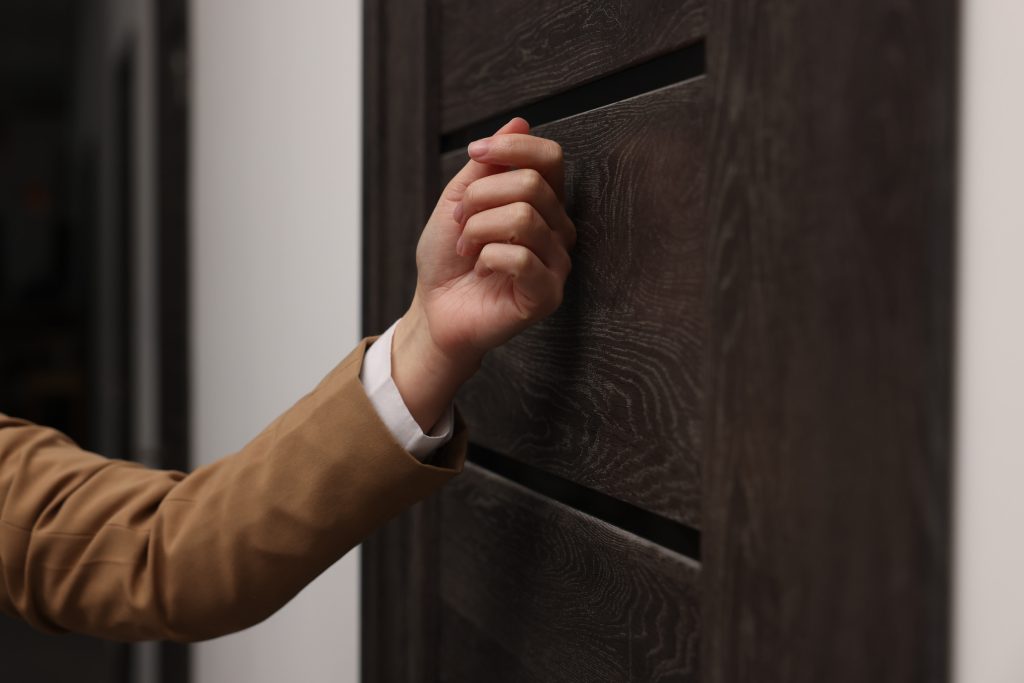
The sound of an unexpected doorbell once sparked curiosity, but for many younger people today, it triggers anxiety. While older generations might not think twice about opening their front door to a stranger, Millennials and Gen Z often have a different reaction: silence and a quick peek through the blinds. This shift in behavior isn’t just a quirk; it’s a reflection of changing technology, safety concerns, and social norms. Understanding why so many people are hesitant to answer the door reveals a lot about modern life.
The Rise of Digital Communication
Younger generations have grown up in a world where communication is almost always scheduled. Friends text before they call, deliveries send tracking notifications, and visitors are expected to announce their arrival via message.
An unannounced knock at the door disrupts this established digital etiquette, immediately feeling suspicious or out of place. For many, the only reason someone would show up unannounced is for a solicitation or an emergency, neither of which they want to deal with. This makes them reluctant to answer the door without a digital heads-up.
Heightened Safety and Stranger-Danger
Constant exposure to true-crime documentaries and news stories about home invasions has made many people hyper-aware of personal safety. The “stranger-danger” lessons of childhood have evolved into a general distrust of unexpected visitors.
Without knowing who is on the other side, opening the door can feel like taking an unnecessary risk in an unpredictable world. This fear is why video doorbells have become so popular, as they allow residents to screen visitors safely. The hesitation to answer the door is often a calculated decision based on self-preservation.
Avoiding Unwanted Solicitations
Few things are more universally disliked than an aggressive salesperson or a canvasser interrupting your evening. In the past, this was a common annoyance people simply tolerated, but today’s generations have less patience for it.
They see their home as a sanctuary from the constant barrage of advertising and social pressure they experience online. Choosing not to answer the door is an effective way to maintain that peace and avoid an awkward, high-pressure conversation. It’s a simple boundary-setting mechanism in a world that constantly demands their attention.
Social Anxiety in an On-Demand World
The pressure to be “on” for an unexpected social interaction can be a major source of anxiety. When you’re relaxing at home, you might not be mentally or physically prepared to entertain a guest. Younger people, in particular, report higher levels of social anxiety and value their ability to control their social environment.
An unexpected visitor removes that control, forcing an interaction they may not feel equipped to handle at that moment. Therefore, ignoring the doorbell is a way to protect their mental energy and avoid discomfort.
The Doorbell’s Changing Significance
The simple act of whether or not to answer the door highlights a significant generational divide in social norms and technology. For many young adults, the front door is no longer a welcoming portal for surprise visits but a barrier to be managed carefully.
The expectation of pre-scheduled, digitally announced arrivals has fundamentally changed our relationship with the doorbell. As technology continues to shape our interactions, the reluctance to answer the door for an unexpected guest is likely to become even more common.
Do you still answer the door for unexpected visitors? Why or why not?
Read More:
The Age Debate: 10 Reasons Why Teens Shouldn’t Drive Until 21
7 Safety Tips You’ll Only Understand After Someone Tries to Break In
The post Why Younger Generations Are Afraid to Answer the Door appeared first on Budget and the Bees.







